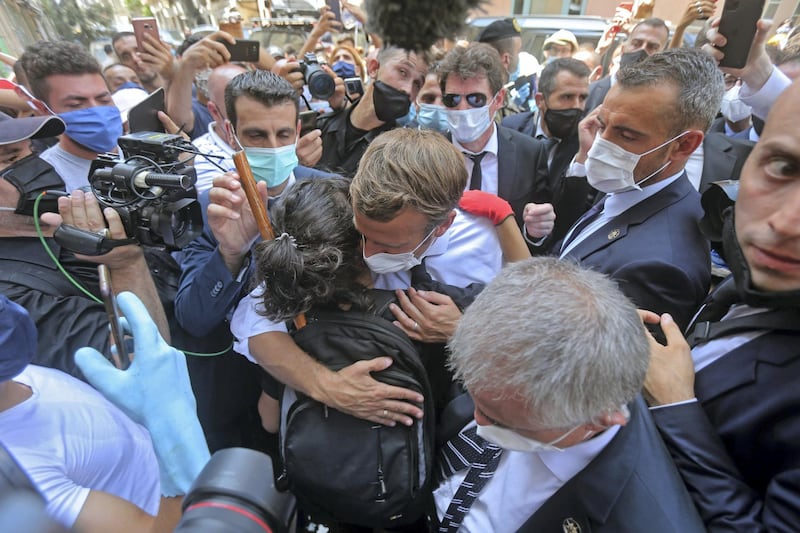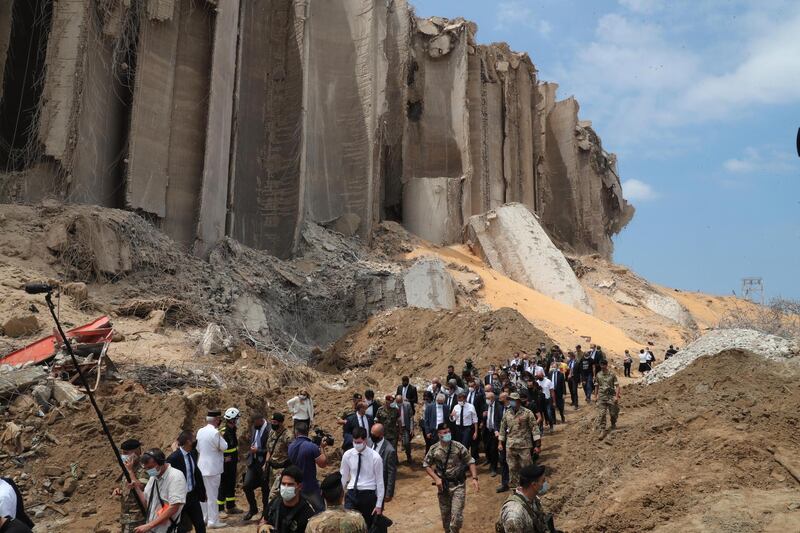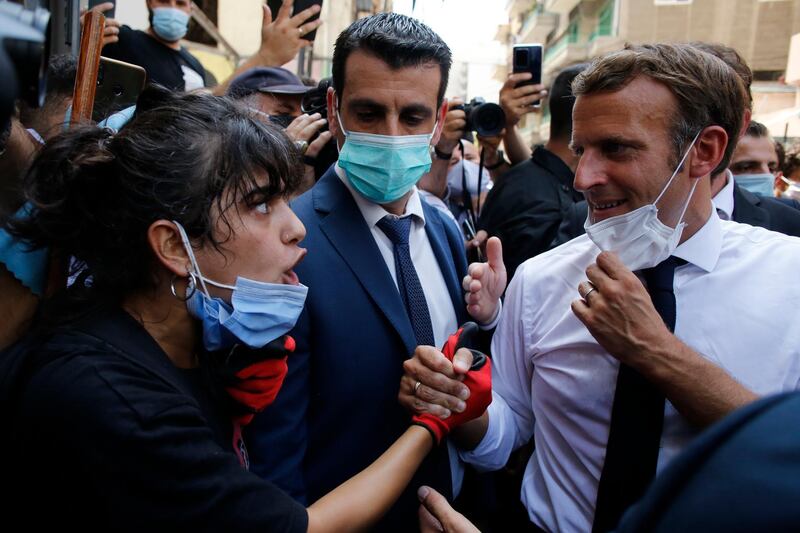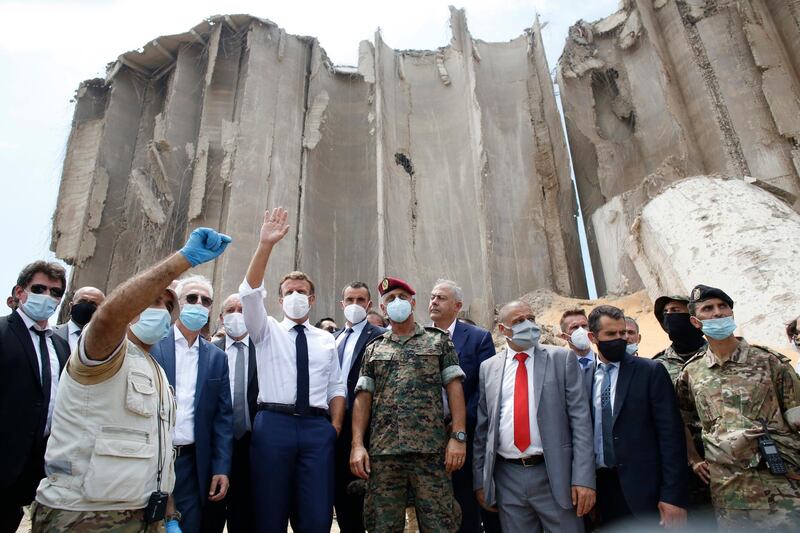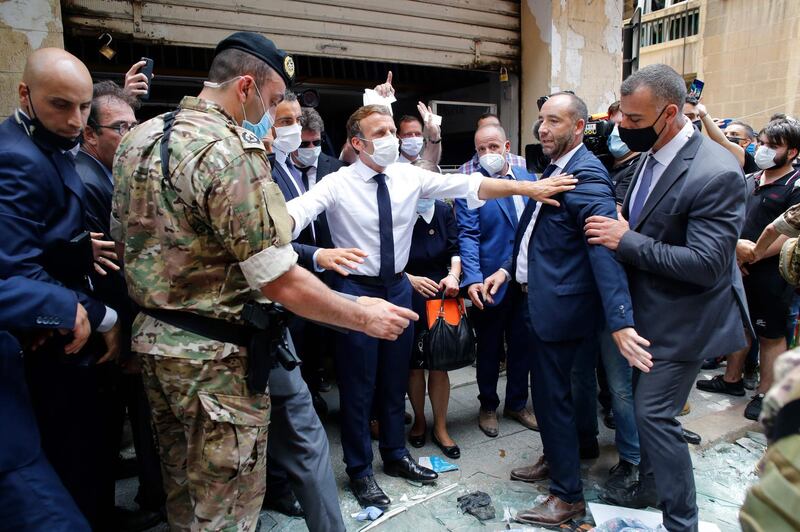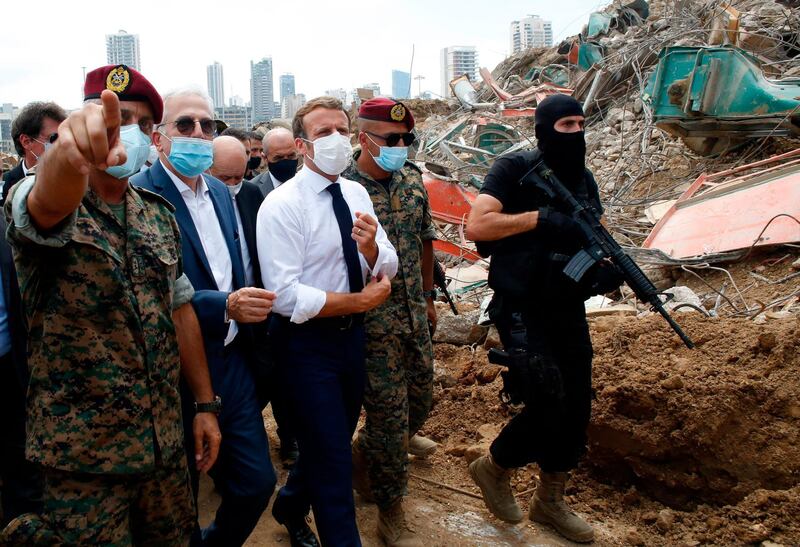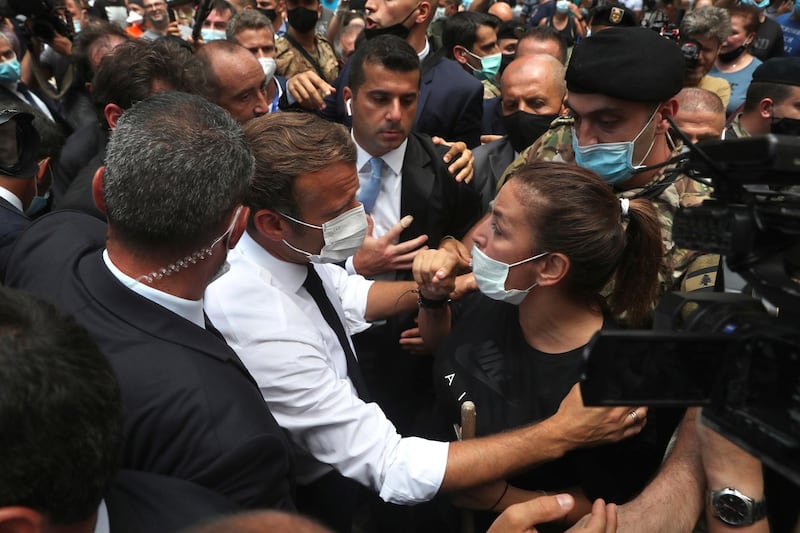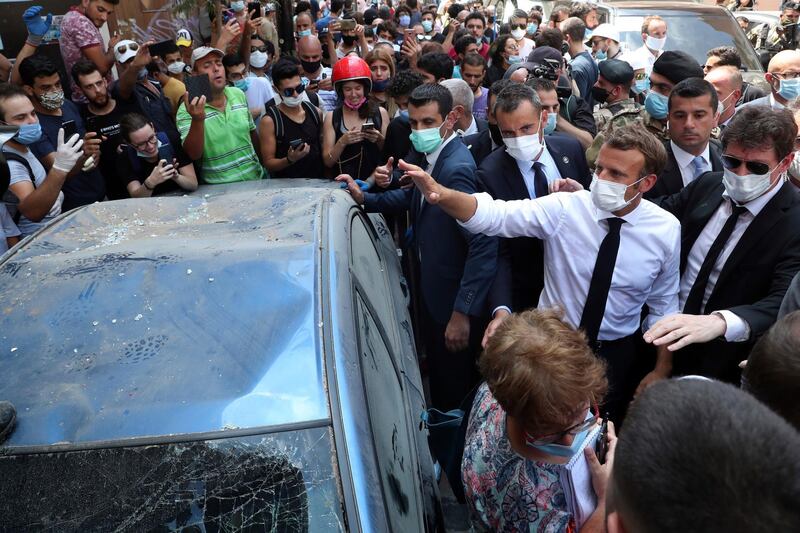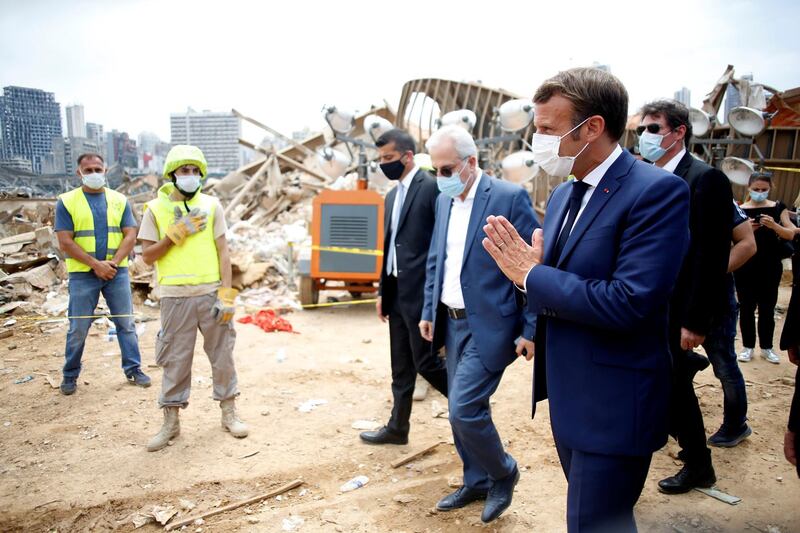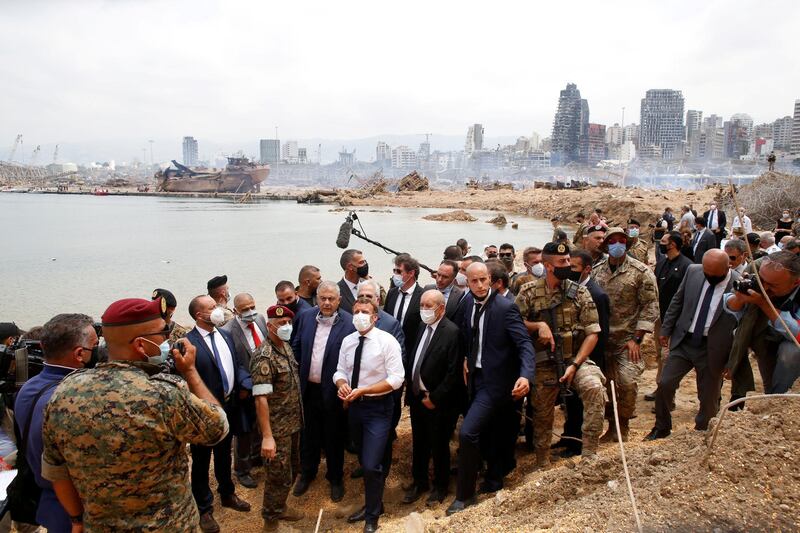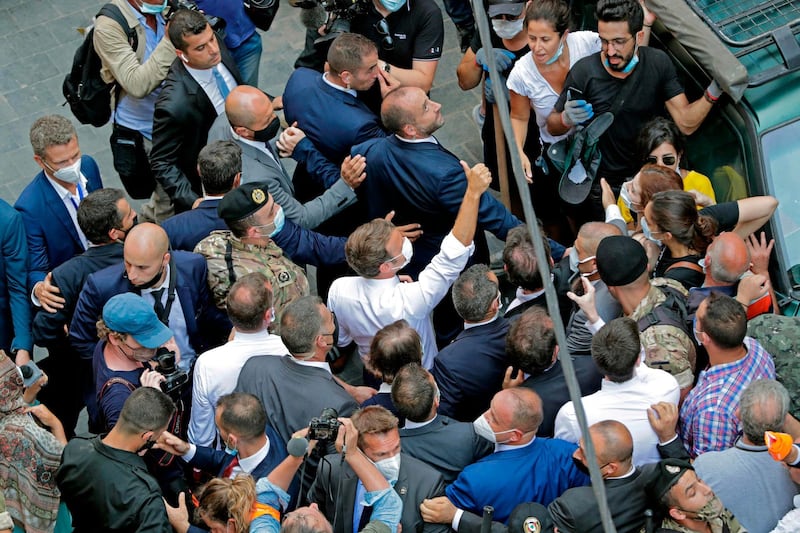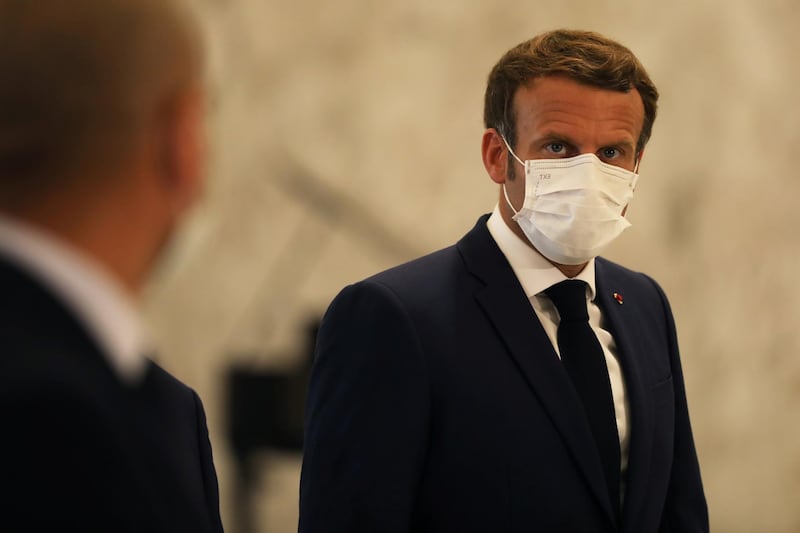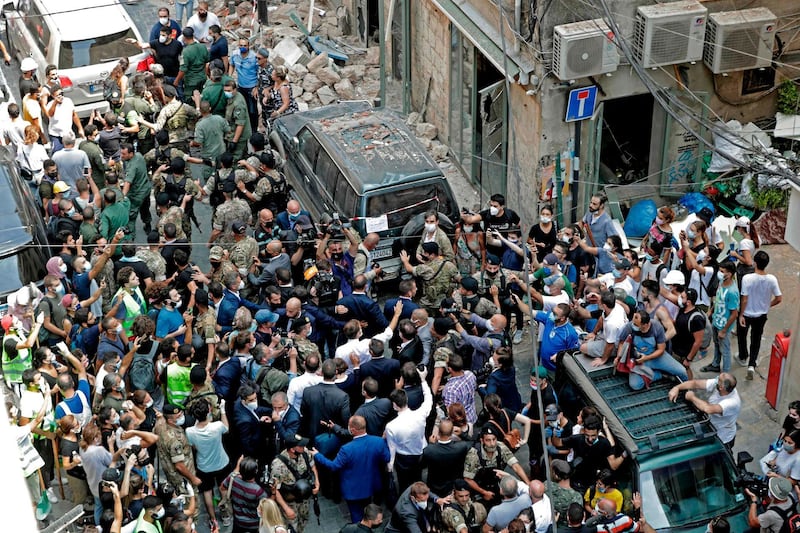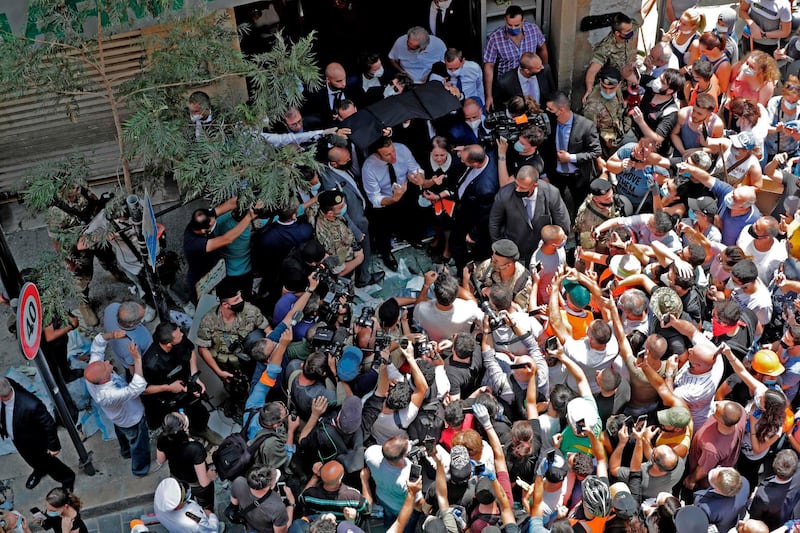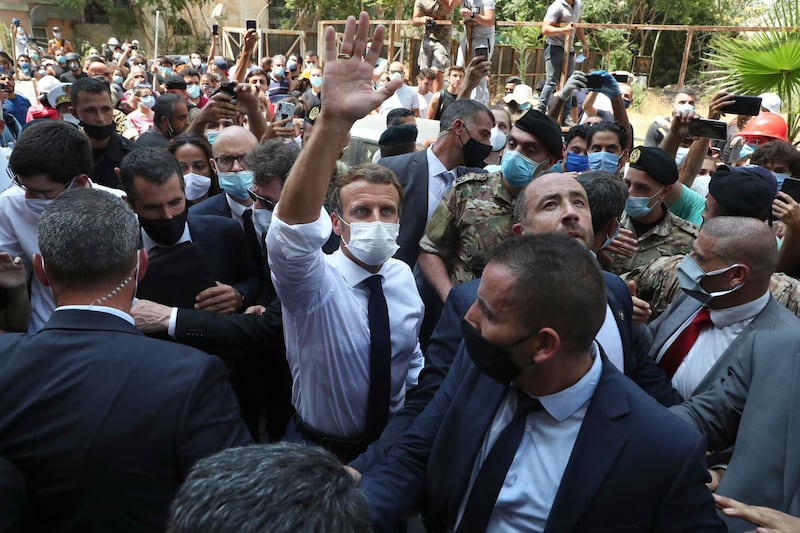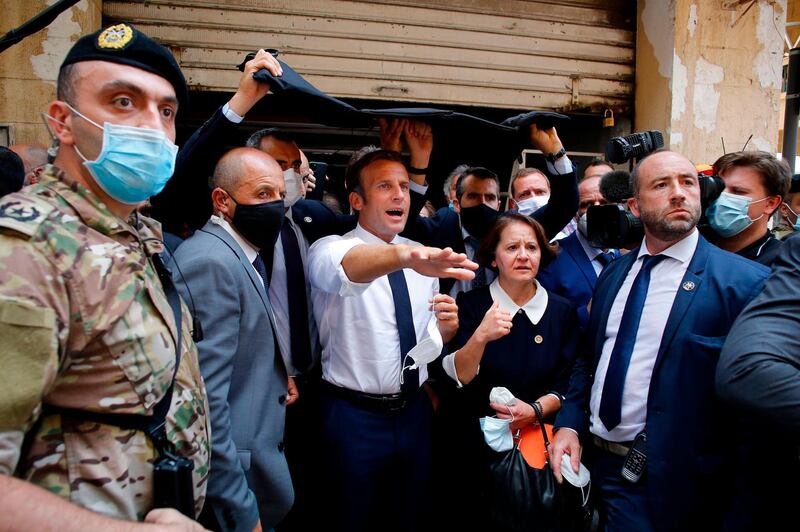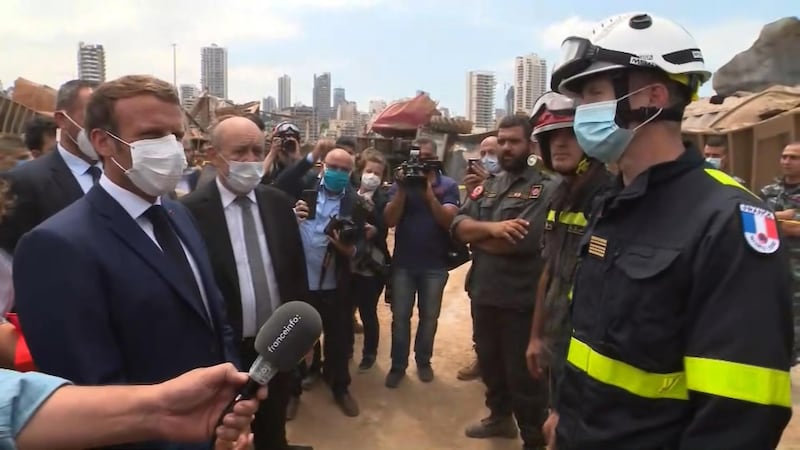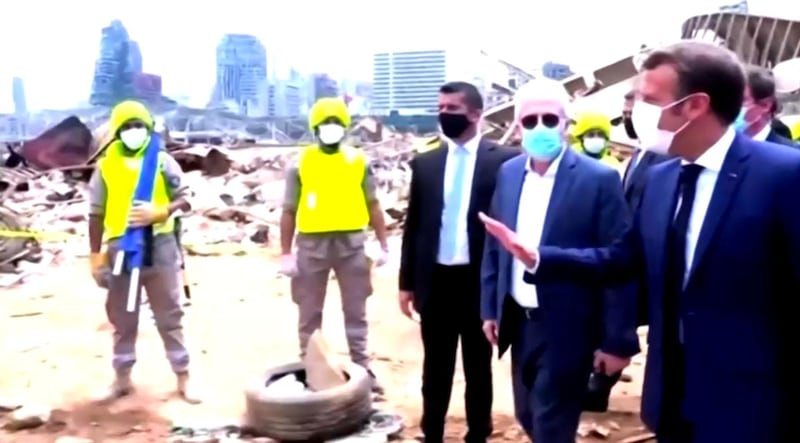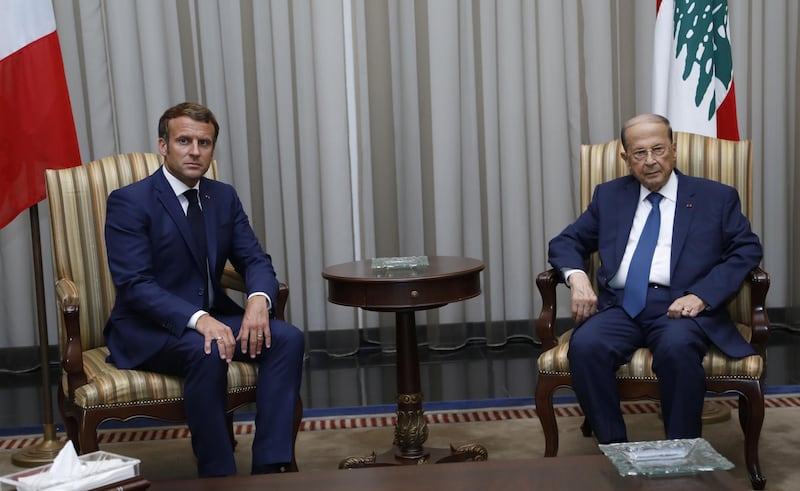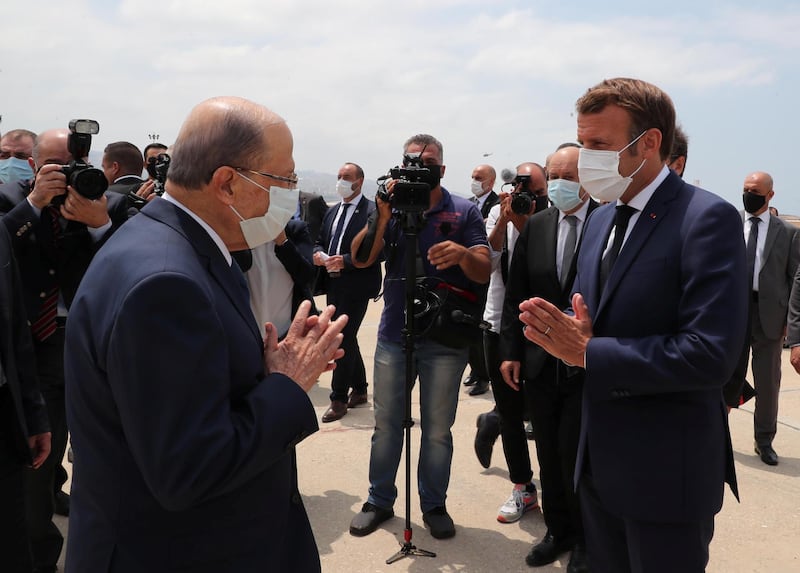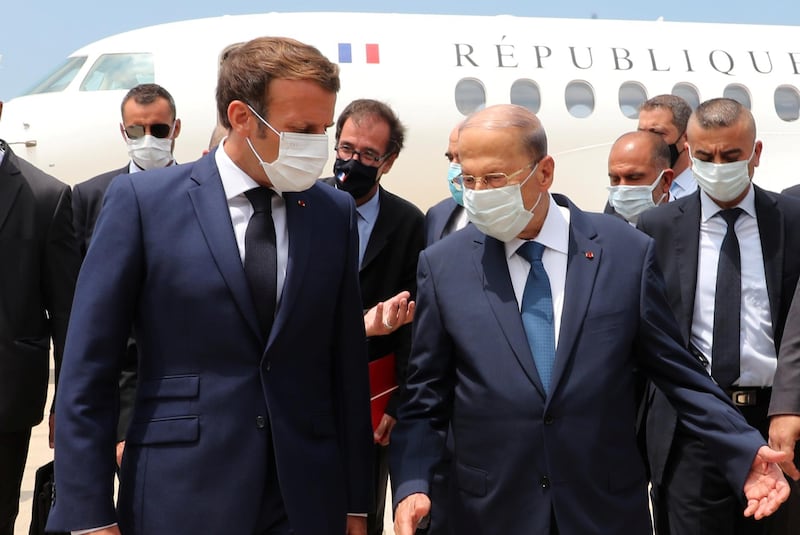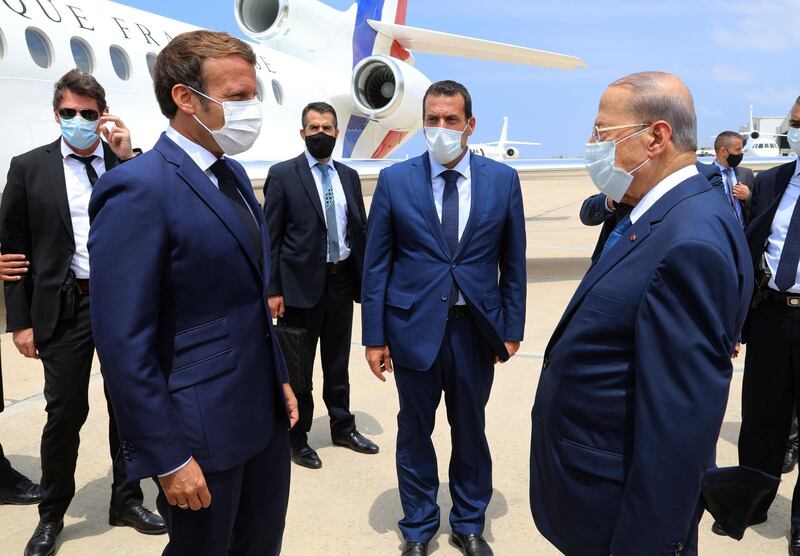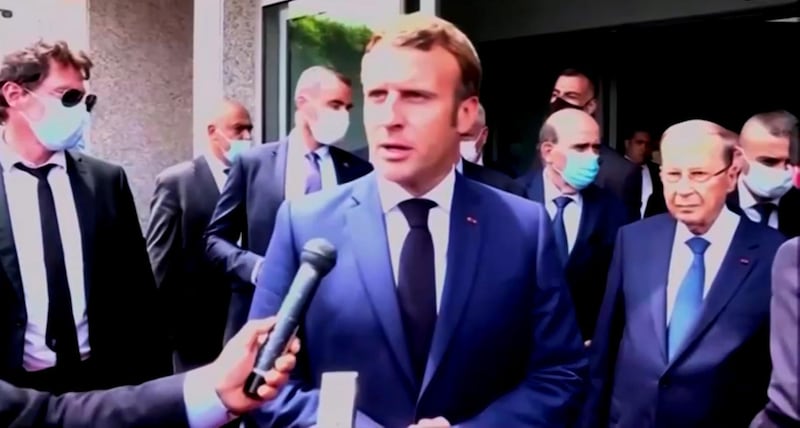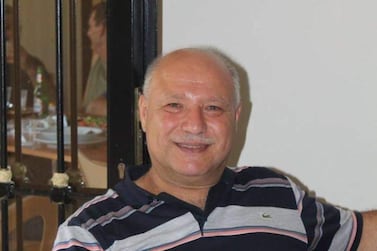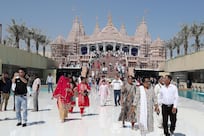French President Emmanuel Macron has talked with Lebanese people protesting against their government in Beirut after the country's capital was devastated by an explosion on Tuesday.
In footage broadcast on television stations, the crowd could be heard shouting for regime change. Mr Macron responded that he would propose a new political pact in Lebanon, giving the government until September 1 to impose it, AFP reported.
"I am here also to launch a new political initiative because there is anger against the political system," he told the crowd.
#urgent Macron to Lebanese citizens in a blast hit area: I will propose a new political pact in lebanon, and I will be back in September 1, and if they can't do it, I'll take my political responsibility- #lebanon #beirut #france pic.twitter.com/jGDxJea1yD
— Mohamad Ali Harissi (@aleeharissi) August 6, 2020
"It’s what I’ll express this afternoon [to Lebanese politicians]. We must today proceed with reforms to change the system to stop the division of Lebanon to fight against corruption, to have transparency and truth, this explosion is the consequences of negligence," he added.
"We don't want the money to go to our government," one man told Mr Macron – who has offered to co-ordinate the outpouring of international funds and support for Lebanon – as the president walked the streets of the stricken area of Gemmayze.
"You can trust me so that the help comes to you directly," Mr Macron replied in video broadcast on news channels.
Mr Macron arrived in Lebanon on Thursday to offer support and travelled to the blast site. He stopped after the visit to talk to people in the streets, hugging people and listening to their woes.
Lebanese President Michel Aoun received Mr Macron on Thursday afternoon as he landed in Beirut, two days after the blast that shook a country already battling runaway inflation, mass unemployment and rising poverty. The death toll from the explosion has reached 137 people, with thousands more injured.
Macron visits Beirut explosion site
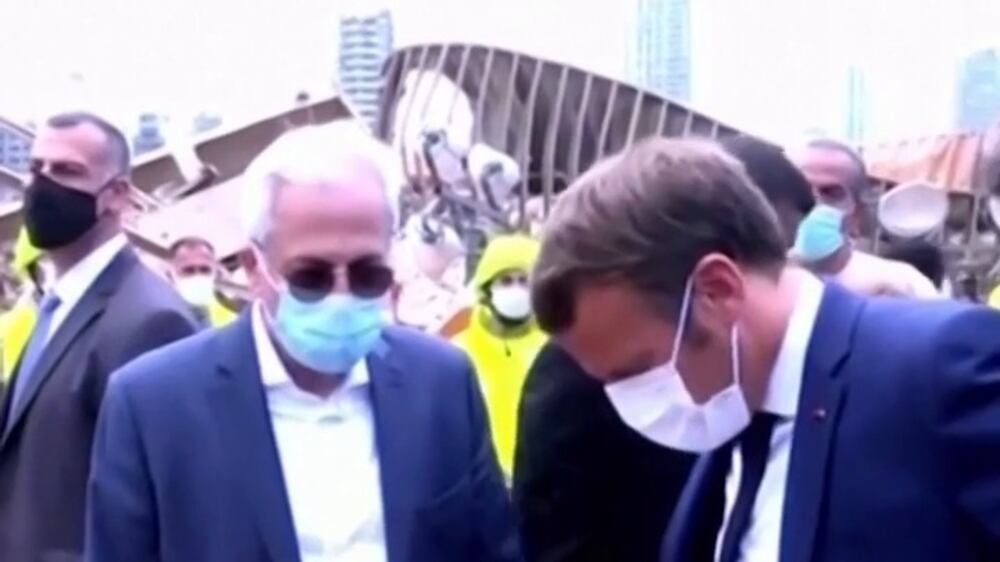
Speaking on his arrival, Mr Macron said Lebanon will "continue to sink" without reforms, and offered to co-ordinate the international relief effort.
"I want to organise European co-operation and, more broadly, international co-operation," he said in the Lebanese capital, where he will stay just a few hours to survey the scene of the explosion and meet the country's top officials.
Mr Macron's visit was preceded by two planes carrying French rescue workers and aid, which landed in Lebanon on Wednesday. Mr Macron is expected to give a speech later on Thursday.
“This visit is the opportunity to have a frank dialogue and be demanding towards Lebanese political forces and institutions,” he said. Reforms including the fight against corruption are “indispensable”, he added, and if they are not carried out, “Lebanon will continue sinking.”
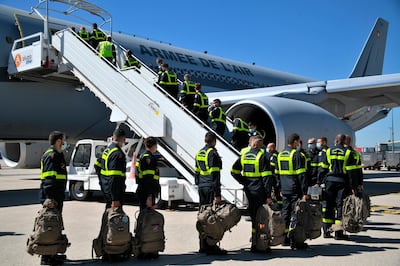
Global aid, he added, would be channelled through non-governmental organisations “so that it goes to the right place as fast as possible”.
One French citizen, architect Jean-Marc Bonfils, died in the blast, which smashed windows many kilometres away from the explosion at Beirut's port. A further 24 French people were injured.
Culture Minister Roselyne Bachelot announced Bonfils' death on Twitter. Junior foreign affairs minister Jean-Baptiste LeMoyne said on Thursday that, of those hurt, three had sustained serious injuries.
As he arrived in Lebanon Mr Macron's official Twitter account sent a message in Arabic that said: "Lebanon is not alone".
لبنان ليس وحيداً
— Emmanuel Macron (@EmmanuelMacron) August 6, 2020
On Wednesday the French president said he would visit Beirut to "meet the Lebanese people to bring them the message of fraternity and solidarity of the French", and added he would "take stock" of the situation with Lebanese authorities.
Lebanon gained independence from France on January 1, 1944.
